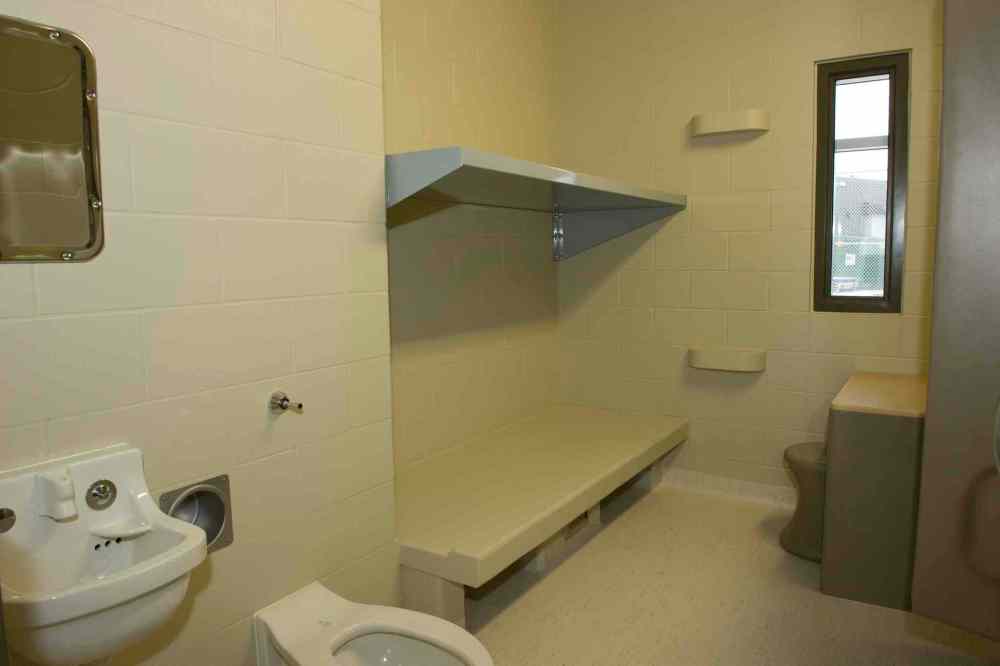Province tackles worrisome rates of incarceration
70 per cent of provincial inmates awaiting trial
Advertisement
Read this article for free:
or
Already have an account? Log in here »
To continue reading, please subscribe:
Monthly Digital Subscription
$1 per week for 24 weeks*
- Enjoy unlimited reading on winnipegfreepress.com
- Read the E-Edition, our digital replica newspaper
- Access News Break, our award-winning app
- Play interactive puzzles
*Billed as $4.00 plus GST every four weeks. After 24 weeks, price increases to the regular rate of $19.00 plus GST every four weeks. Offer available to new and qualified returning subscribers only. Cancel any time.
Monthly Digital Subscription
$4.75/week*
- Enjoy unlimited reading on winnipegfreepress.com
- Read the E-Edition, our digital replica newspaper
- Access News Break, our award-winning app
- Play interactive puzzles
*Billed as $19 plus GST every four weeks. Cancel any time.
To continue reading, please subscribe:
Add Winnipeg Free Press access to your Brandon Sun subscription for only
$1 for the first 4 weeks*
*$1 will be added to your next bill. After your 4 weeks access is complete your rate will increase by $0.00 a X percent off the regular rate.
Read unlimited articles for free today:
or
Already have an account? Log in here »
Hey there, time traveller!
This article was published 03/11/2015 (3605 days ago), so information in it may no longer be current.
Justice Minister Gord Mackintosh says there are too many bottlenecks in Manitoba’s court system, and those charged with crimes need to be dealt with in a more timely manner.
Mackintosh made the comment in reaction to figures released by his department this week that show the province continues to have the highest adult and youth incarceration rates in the country.
“We have to tackle serious challenges in how we are dealing with cases as they come into the justice system,” he said in an interview Tuesday.

The situation is so serious, he said, 70 per cent of provincial inmates are on remand — their cases have yet to go to trial — compared with 30 per cent who are serving sentences.
“They’re not just awaiting trial. Some are awaiting release on bail. And a very large number of those held on remand are in for only a few days,” the minister said. “And that, to my mind, is largely a processing challenge. We have to rethink how we are dealing with those that are being picked up and being brought to the justice system.”
Mackintosh said the province’s sky-high incarceration rates mask the fact serious crime is down in the province.
“Crime severity is down more in Manitoba than in any other province over the last decade,” he said.
Mackintosh said he’s directed his department to “enhance efforts” to deal with institution overcrowding and delays in processing criminal cases.
He said this summer, the Justice Department launched a new effort called the intensive case assessment process. Seven prosecutors and two support staff have begun to triage cases so individuals don’t languish in the Winnipeg Remand Centre, he said.
The group will also look at those who are incarcerated for as little as a week to determine how the cases can be handled more efficiently. Many of these individuals are in custody not because they pose a threat to public safety but because the system is inefficient, he said.
Mackintosh has also asked a senior member of his department — former Manitoba ombudsman Irene Hamilton — to undertake “a major justice reinvestment strategy” that will shift resources from “the very low-risk remand population to high-risk repeat offenders.”
And he’s asked bail conditions be tailored to an individual’s case rather than employing a “boilerplate list of conditions” that apply to all.
“In other words, if someone is charged on a matter that is unrelated to having a beer or the time of day, why are there curfews (imposed)? Why would there be (alcohol) abstaining conditions and so on?” he said.
Progressive Conservative justice critic Kelvin Goertzen (Steinbach) said there are several administrative reforms the department can take to speed up the court process, and he wonders why the government hasn’t acted before now.

He noted Mackintosh, who was named justice minister in April, previously served in that capacity during Gary Doer’s administration.
“I’m glad the minister realizes there’s a problem, but he was the attorney general 14 years ago. The problem is not only still there, it’s actually worse,” Goertzen said.
John Hutton, executive director of the John Howard Society, said Manitoba already had a high incarceration rate when the Harper government instituted a series of tough-on-crime measures that exacerbated the problem.
One of the measures, the institution of minimum sentences, has greatly reduced the number of accused who plead guilty, Hutton said. There is now more incentive to fight a charge at trial. Meanwhile, judges have less flexibility to impose sentences in the community, he said, also adding to incarceration rates.
Hutton decried a system in which many people are sitting in jail “simply because they haven’t been to court yet.”
He said it’s harder to get bail in Manitoba than in other provinces. Northerners who have moved to Winnipeg and have no family supports here are unlikely to receive bail, he said.
“We’re not only locking up innocent people. We’re locking up a certain percentage of those who will never be convicted,” Hutton said.

